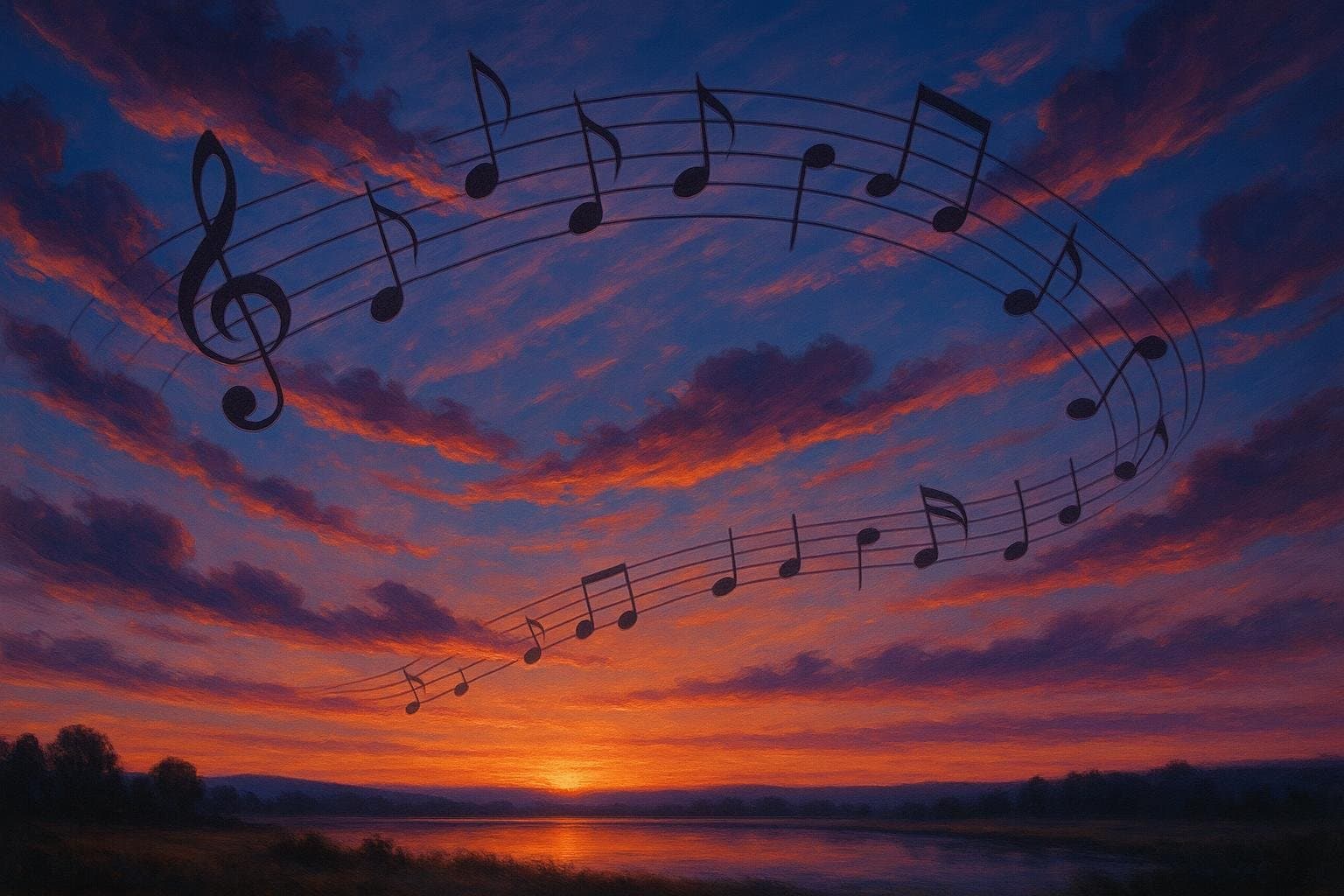The Harmonies of Nature: Debussy and the Musical Sunset

Nothing is more musical than a sunset. — Claude Debussy
—What lingers after this line?
One-minute reflection
What's one small action this suggests?
Debussy’s Poetic Connection to Nature
French composer Claude Debussy often drew inspiration from the natural world, seeing it as a source of evocative beauty. In his statement, 'Nothing is more musical than a sunset,' Debussy invites us to recognize the symphonic qualities of everyday phenomena. His music, such as the ethereal 'Clair de Lune,' reflects this reverence for nature’s sensory experiences, translating the visual splendor of dusk into sound and feeling.
Sunsets as Nature’s Orchestra
Much like a musical composition, sunsets unfold in movements—shifting colors, changing light, and evolving moods. The interplay of warm hues at twilight resembles the crescendo and diminuendo found in orchestral works. Through this analogy, Debussy emphasizes that the beauty inherent in nature rivals any masterpiece composed by humans, challenging us to listen with both our eyes and ears.
Impressionism in Music and Art
Debussy is considered a pioneer of musical Impressionism, a movement paralleled in painting by Monet and Renoir. Impressionists sought to capture fleeting moments, focusing on tone and atmosphere rather than precise detail. Similarly, a sunset is transient—its colors and forms shifting with a delicacy that defies exact description. Debussy’s works, such as 'La Mer,' evoke the ephemeral serenity found in a fading sky, further blurring the line between visual and auditory art.
Emotional Resonance of Sunsets
Just as music stirs deep feelings, so too does the sight of a sunset. This moment of day’s end often evokes reflection, awe, and tranquility, resonating with the listener’s inner emotions. Debussy’s analogy suggests that, like a moving melody, the sunset’s beauty lies not only in its appearance but in the way it shapes our emotional landscape—a shared language between nature and human experience.
Listening to the World Anew
In linking sunsets and music, Debussy encourages us to perceive the world through a fresh perspective. As Plato wrote in his 'Republic,' music is 'a moral law,' shaping our souls through harmony. Similarly, attuning ourselves to the music of sunsets enriches our appreciation of daily wonders. Ultimately, Debussy’s insight compels us to find harmony in both sound and silence, reminding us that the world itself composes symphonies for those who are willing to listen.